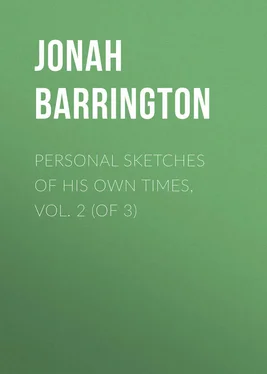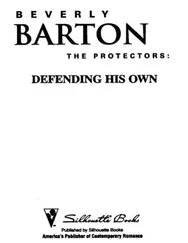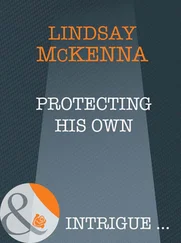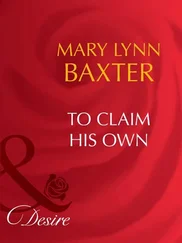Jonah Barrington - Personal Sketches of His Own Times, Vol. 2 (of 3)
Здесь есть возможность читать онлайн «Jonah Barrington - Personal Sketches of His Own Times, Vol. 2 (of 3)» — ознакомительный отрывок электронной книги совершенно бесплатно, а после прочтения отрывка купить полную версию. В некоторых случаях можно слушать аудио, скачать через торрент в формате fb2 и присутствует краткое содержание. Жанр: foreign_antique, foreign_prose, на английском языке. Описание произведения, (предисловие) а так же отзывы посетителей доступны на портале библиотеки ЛибКат.
- Название:Personal Sketches of His Own Times, Vol. 2 (of 3)
- Автор:
- Жанр:
- Год:неизвестен
- ISBN:нет данных
- Рейтинг книги:4 / 5. Голосов: 1
-
Избранное:Добавить в избранное
- Отзывы:
-
Ваша оценка:
- 80
- 1
- 2
- 3
- 4
- 5
Personal Sketches of His Own Times, Vol. 2 (of 3): краткое содержание, описание и аннотация
Предлагаем к чтению аннотацию, описание, краткое содержание или предисловие (зависит от того, что написал сам автор книги «Personal Sketches of His Own Times, Vol. 2 (of 3)»). Если вы не нашли необходимую информацию о книге — напишите в комментариях, мы постараемся отыскать её.
Personal Sketches of His Own Times, Vol. 2 (of 3) — читать онлайн ознакомительный отрывок
Ниже представлен текст книги, разбитый по страницам. Система сохранения места последней прочитанной страницы, позволяет с удобством читать онлайн бесплатно книгу «Personal Sketches of His Own Times, Vol. 2 (of 3)», без необходимости каждый раз заново искать на чём Вы остановились. Поставьте закладку, и сможете в любой момент перейти на страницу, на которой закончили чтение.
Интервал:
Закладка:
There could not be a greater game-cock (the Irish expression for a man of determined courage) than my friend G – . That he was not only spirited himself, but the cause of infusing spirit into others, will appear from the following humorous letter which I received from him during my contested election for Maryborough. That election gave rise to many characteristic Irish adventures, for which this volume does not afford compass. Lord Castlecoote, the returning officer, (himself also a joint proprietor ,) evinced an excessive horror of becoming acquainted with the reporters . Some person having jocularly told him of my friend’s letter, it became a subject of great amusement, and afforded a variety of anecdotes for the Honourable Robert Moore, who supported me on that election against his brother, the Marquis of Drogheda.
“Dublin, Jan. 29th, 1800.“My dear Jonah,
“I have this moment sent to the mail coach-office two bullet-moulds, not being certain which of them belongs to the reporters : suspecting, however, that you may not have time to melt the lead , I also send half-a-dozen bullets, merely to keep you going while others are preparing.
“I lament much that my situation and political feeling prevent me from seeing you exhibit at Maryborough.
“Be bold, wicked, steady , and fear nought !
“Give a line to yours, truly, “H. D. G. “Jonah Barrington, Esq.”I took his advice: – our friendship was long and close; and we never (that I am aware of) had any cause for coolness.
There could not be a better elucidation of Rule No. 5. of the code of honour, than an anecdote of Barry Yelverton, second son of Lord Avonmore, baron of the exchequer. – Barry was rather too odd a fellow to have been accounted at all times perfectly compos mentis . He was a barrister. In a ball-room on circuit, where the officers of a newly arrived regiment had come to amuse themselves and set the Munster lasses agog, Barry, having drunk too many bumpers, let out his natural dislike to the military, and most grossly insulted several of the officers; abusing one, treading on the toes of another, jostling a third, and so forth, till he had got through the whole regiment. Respect for the women, and the not choosing to commit themselves with the black gowns on the first day of their arrival, induced the insulted parties to content themselves with only requiring Barry’s address, and his hour of being seen the next morning. Barry, with great satisfaction, gave each of them his card, but informed them that sending to him was unnecessary; – that he was his own second , and would meet every man of them at eight o’clock next morning, in the ball-room; concluding by desiring them to bring their swords, as that was always his weapon. Though this was rather a curious rendezvous, yet, the challenged having the right to choose his weapon, and the place being à propos , the officers all attended next day punctually, with the surgeon of the regiment and a due proportion of small-swords, fully expecting that some of his brother gownsmen would join in the rencontre. On their arrival, Barry requested to know how many gentlemen had done him the honour of giving him the invitation, and was told their names, amounting to nine. “Very well, gentlemen,” said Yelverton, “I am well aware I abused some of you, and gave others an offence equivalent to a blow, – which latter being the greatest insult, we’ll dispose of those cases first, and I shall return in a few minutes fully prepared.”
They conceived he had gone for his sword, and friends. But Barry soon after returned alone, and resumed thus: – “Now, gentlemen, those to each of whom I gave an equivalent to a blow will please step forward.” Four of them accordingly did so, when Barry took from under his coat a bundle of switches, and addressed them as follows: – “Gentlemen, permit me to have the honour of handing each of you a switch, (according to the rule No. 5. of the Tipperary Resolutions,) wherewith to return the blow, if you feel any particular desire to put that extremity into practice. I fancy, gentlemen, that settles four of you; and as to the rest, here, (handing one of his cards to each, with I beg your pardon written above his name) that’s agreeable to No. 1. (reading the Rule). Now I fancy all your cases are disposed of; and having done my duty according to the Tipperary Resolutions, which I will never swerve from, – if, gentlemen, you are not satisfied, I shall be on the bridge to-morrow morning, with a case of barking-irons .” The officers stared, first at him, then at each other: the honest, jolly countenance and drollery of Barry were quite irresistible; first a smile of surprise, and then a general laugh, took place, and the catastrophe was their asking Barry to dine with them at the mess, where his eccentricity and good humour delighted the whole regiment. The poor fellow grew quite deranged at last, and died, I believe, in rather unpleasant circumstances.
The late Lord Mount Garret (afterward Earl of Kilkenny) had for several years a great number of law-suits on his hands at once, particularly with some insolvent tenants, whose causes had been gratuitously taken up by Mr. Ball, an attorney; – Mr. William Johnson and several other gentlemen of the circuit took their briefs. His Lordship was dreadfully tormented. He was naturally a very clever man, and devised a new mode of carrying on his law-suits, not being able, as he said, to trust his attorney out of his sight.
He engaged a clientless attorney, named Egan, as his working solicitor, at a very liberal yearly stipend, upon the express terms of his undertaking no other business whatsoever , and holding his office solely in his Lordship’s own house and under his own eye and direction. His Lordship applied to Mr. Fletcher (afterward judge) and to myself, requesting an interview; whereupon, he informed us of his situation: that there were generally eight or ten counsel pitted against him; but that he would have much more reliance on the advice and punctual attendance of two certain, than of ten straggling gentlemen; and that, under the full conviction that one of us at least would always attend the court when his causes were on, and not leave him in the lurch as he had been left, he had directed his attorney to mark on our two briefs ten times the amount of what the fees should be on the other side: “Because,” said his Lordship, “if you don’t attend, to a certainty I must engage ten counsel, as well as my opponents.” The singularity of the proposal set us laughing, in which his Lordship joined.
Fletcher and I accepted the offer: we did punctually and zealously attend these numerous trials, and were most liberally feed; but most unsuccessful in our efforts; for we never were able to gain a single cause, verdict, or motion, for our client.
The principle of strict justice certainly was with his Lordship; but certain formalities of the law were decidedly against him: he had, in fact, adopted an obsolete mode of proceeding as a short cut: thus, perceiving himself likely to be foiled, he determined to take another course, quite out of our line, and a course whereby no suit is decided in modern days – namely fight it out , “muzzle to muzzle,” with the attorney and all the counsel on the other side.
The first procedure on this determination was a direct challenge from his Lordship to the attorney, Mr. Ball: it was accepted, and a duel immediately followed, in which his Lordship got the worst of it. He was wounded by the attorney at each shot, the first taking place in his Lordship’s right arm, which probably saved the solicitor, as his Lordship was a most accurate marksman. The noble challenger received the second bullet in his side, but the wound was not dangerous. The attorney’s skin remained quite whole.
Читать дальшеИнтервал:
Закладка:
Похожие книги на «Personal Sketches of His Own Times, Vol. 2 (of 3)»
Представляем Вашему вниманию похожие книги на «Personal Sketches of His Own Times, Vol. 2 (of 3)» списком для выбора. Мы отобрали схожую по названию и смыслу литературу в надежде предоставить читателям больше вариантов отыскать новые, интересные, ещё непрочитанные произведения.
Обсуждение, отзывы о книге «Personal Sketches of His Own Times, Vol. 2 (of 3)» и просто собственные мнения читателей. Оставьте ваши комментарии, напишите, что Вы думаете о произведении, его смысле или главных героях. Укажите что конкретно понравилось, а что нет, и почему Вы так считаете.












